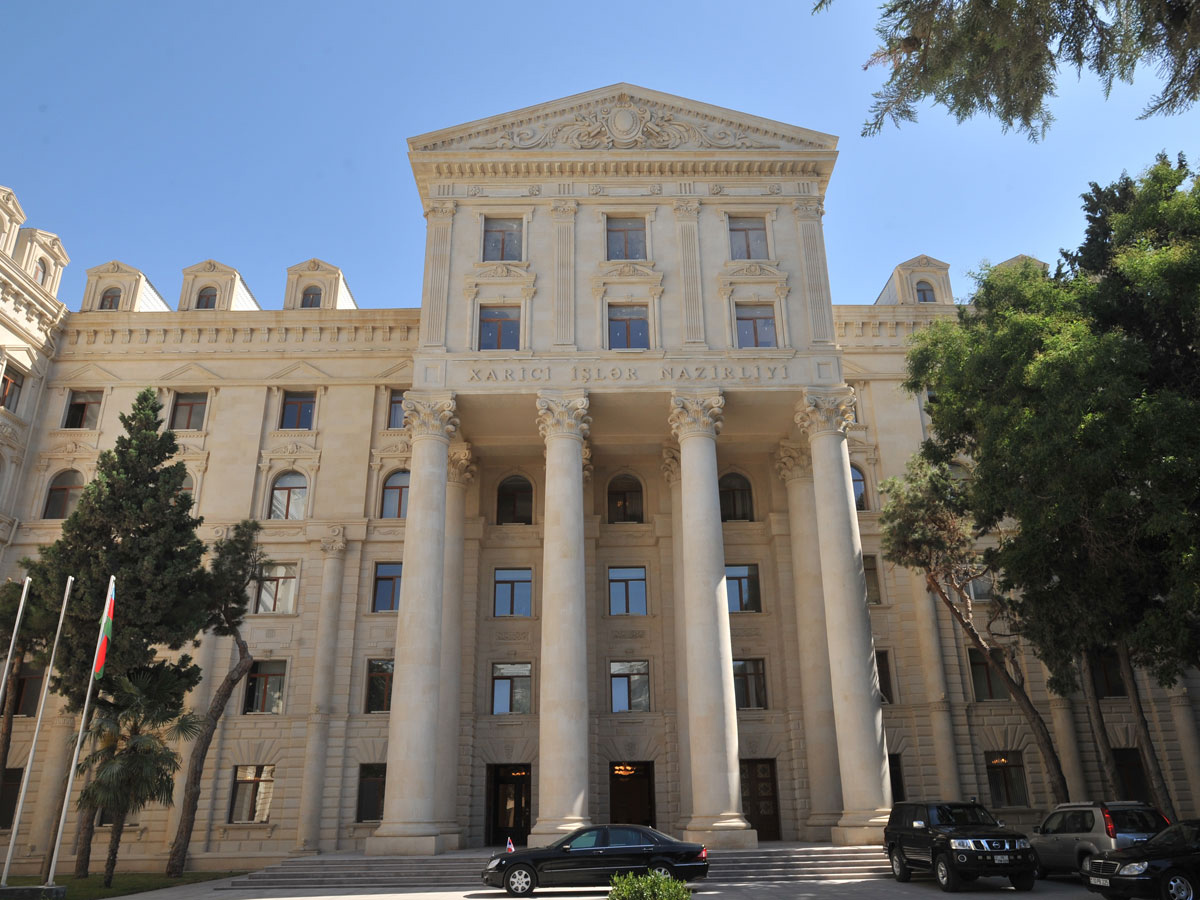Baku: Yerevan distorts principles of negotiation process

By Trend
Armenia distorts the essence of the statements made by the presidents of the OSCE Minsk Group co-chairing countries in L'Aquila, Muskoka, Deauville, Los Cabos and Enniskillen, as well as the principles of the Helsinki Final Act, trying to mislead its people and the international community, Hikmat Hajiyev, spokesman for the Azerbaijani Foreign Ministry, told Trend on November 24.
Hajiyev was commenting on Armenian President Serzh Sargsyan's statement on the Armenia-Azerbaijan Nagorno-Karabakh conflict in an interview with Sputnik news agency.
“The interrelation, as well as equal and common use of principles are stressed in the Helsinki Final Act dated 1975,” Hajiyev added.
Hajiyev said that according to the Helsinki Final Act, any country is responsible for the use of force against the territorial integrity and political sovereignty of other country or the threat of using force.
“According to the paragraph 8 of the Helsinki Final Act, while expressing respect for the equal rights of peoples and the principle of self-determination, the member-states in all cases act in accordance with the purposes and principles of the UN Charter and corresponding norms of international law and the territorial integrity of countries,” he added.
“In previous declarations, the presidents of the OSCE MG co-chairing countries present the principles of settlement of the conflict in accordance with the Helsinki Final Act in the following order: non-use of force or threat of using force, territorial integrity of countries and self-determination of people," Hajiyev added.
“Armenia, often touching upon the principle of using force or threat of using force, does not understand that it bears the responsibility for fulfillment of the conditions arising out of this principle,” he said.
Hajiyev stressed that Armenia is a side, which occupied Azerbaijani territories, i.e. used force.
"It is Armenia which has big military contingent in the occupied Azerbaijani territories and continues to pose threat by using force,” he added. “Today, Armenia is trying to present the results of occupation of Azerbaijani territories, that is, the use of force against the territorial integrity and sovereignty of Azerbaijan and ethnic cleansing carried out there, as “self-determination”.
"All this is nothing but Armenia’s unsuccessful attempt to cover up its aggression against Azerbaijan,” he said.
“Azerbaijan has repeatedly stated that after the Armenian armed forces withdraw from the occupied Azerbaijani territories and internally displaced people return to their native lands, including Nagorno-Karabakh region of Azerbaijan, Azerbaijani and Armenian communities of the region will be able to exercise this right within Azerbaijan's territorial integrity," he said.
The conflict between the two South Caucasus countries began in 1988 when Armenia made territorial claims against Azerbaijan. As a result of the ensuing war, in 1992 Armenian armed forces occupied 20 percent of Azerbaijan, including the Nagorno-Karabakh region and seven surrounding districts. The 1994 ceasefire agreement was followed by peace negotiations.
Armenia has not yet implemented four UN Security Council resolutions on withdrawal of its armed forces from the Nagorno-Karabakh and the surrounding districts.
---
Follow us on Twitter @AzerNewsAz
